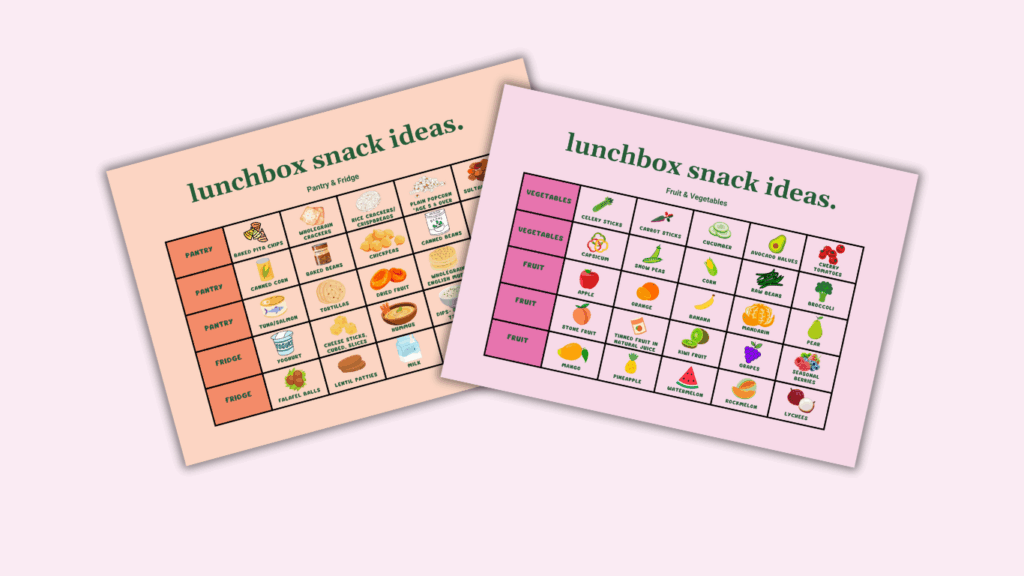Snacking can be more than just a quick bite, it’s an opportunity to fuel your body, boost your energy and enjoy food you love.
Snacking can be more than just a quick bite, it’s an opportunity to fuel your body, boost your energy and enjoy food you love.
Snacks aren’t just “fillers” between meals, they play an important role in supporting energy, focus, and wellbeing throughout the day. Choosing the right snacks can make a real difference in how we feel and function.
Our bodies and brains run on fuel. Nutritious snacks provide steady energy, helping you stay alert at work, school, or during busy days.
A balanced snack can improve concentration, memory, and mood especially helpful for kids at school or adults in the workplace.
Snacking can be a pause to recharge, not just something you do on the run.
Snacks are an opportunity to nourish your body, fuel your mind and enjoy food you love.
A little preparation goes a long way when it comes to snacking. Planning your snacks in advance helps you save time during busy days.
To keep your body and mind fuelled throughout the day, a good snack should include three key components: carbohydrates, protein and healthy fats. Let’s break these down.
Carbohydrates are the body’s main source of energy. When we eat complex carbohydrates like wholegrains, fruits and legumes, they break down slowly to give you longer last energy. Without enough carbohydrates, it can be hard to focus, you might feel more tired and can’t exercise as well. So make sure your snacks include a carbohydrate to sustain you throughout the day. This could be: wholegrain bread or crackers, fruit (like an apple or banana) or oats.
Protein is essential for building and repairing muscle and helping you feel full between meals. After exercise is a great time to include protein, as it helps our muscles recover and repair. Protein also helps keep us fuller for longer, so it’s a great component of an afternoon snack to keep you and your kids going until dinner time. Great sources of protein include: nuts, yoghurt, cheese, eggs and lean meats.
Fats aren’t something to shy away from. They’re a great source of energy, help absorb certain vitamins and play an important role in heart health. Good fats can be found in: olive oil, oily fish like salmon or sardines, nuts or avocado.
Staying hydrated is just as important as eating well. Water is the best choice to help keep us hydrated. Sports drinks and fruit juices are often very high in sugar and can be filling, which means people might miss out on essential nutrients from wholefoods. So fill up your water bottle and send one to school with your child to sip on throughout the day, especially when exercising.
Snacks are little opportunities to fuel your body and enjoy food. With a few simple steps, you can make them nourishing as well as delicious.
Whether you’re after something sweet or savoury, our poster has some fun ideas!
Here are some simple, balanced snack ideas that include carbohydrates, protein and/or health fats:
For more tasty and nutritious snack ideas, check out Women’s Weekly Food!
Looking for lunchbox snack ideas? Download our helpful posters below. Try a variety of these options, many can be prepared in advance to save time during the week!
Snacking is more than just a quick bite, it’s an opportunity to fuel your body, enjoy delicious flavours, and take a moment for yourself throughout the day. By planning ahead, mixing and matching different foods, and choosing snacks that suit your needs, you can make snacking simple, satisfying and fun.
This recipe provides all three main components. The eggs and cheese provide protein and healthy fats. Breadcrumbs provide carbohydrates with the added bonus of veggies. This snack is quick and easy to make and keep in the fridge for snacks throughout the week.
Try these simple and easy bliss balls for a sweet snack.
Want to know more about your individual requirements? Seek support from an Accredited Practising Dietitian.
Explore more useful resources.
